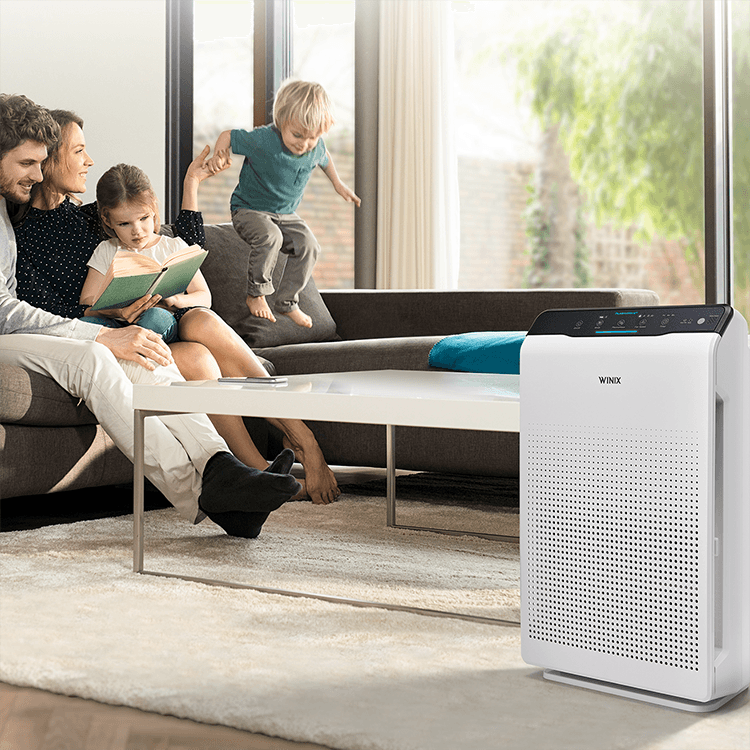
Air Purifiers for Allergies
Air Purifiers for Allergies: Your Comprehensive Guide

Exploring the Benefits and Features of Air Purifiers for Allergy Relief
Breathing clean air is essential for everyone, but it becomes even more critical for those suffering from allergies. Airborne allergens like pollen, mold spores, dust mites, and pet dander can cause allergy symptoms to flare up. Various factors, such as living in a polluted region or having pets indoors, can exacerbate the situation. This in-depth guide will explore the benefits of using air purifiers for allergies, delve into the science behind their effectiveness, and help you choose the perfect one for your needs.
Understanding Allergies: Causes and Symptoms

Allergies occur when your immune system reacts to allergens, which are usually harmless substances in the environment. Common airborne allergens include:
- Pollen from trees, grasses, and weeds
- Mould spores
- Dust mites
- Pet hair and dander
When these particles enter your system, your immune function goes into overdrive to eliminate them, causing symptoms like:
- Watery, itchy, or red eyes
- Runny or stuffy nose
- Sneezing
- Coughing
- Sore throat
- Hives or rashes
- Fatigue
While medications can help alleviate these symptoms, they may cause unwanted side effects. This is where air purifiers come in as an alternative or supplementary solution to help you breathe easier.
Do Air Purifiers help with Allergies?
Yes they do, they are a highly effective tool to help combat allergies and their symptoms. By utilizing various filtration methods they cleanse the air of allergens and contaminants. Thus significantly improving indoor air quality and providing a healthier environment for allergy sufferers.
Choosing the Right Air Purifier for Allergies
Air purifiers work by drawing in air from your room, passing it through a series of filters, and then releasing the clean air back into the room. The filters trap and remove airborne particles, including allergens, preventing them from circulating in the air you breathe.
To effectively eliminate airborne allergens, it's crucial to choose a high-quality air purifier with the appropriate filters. Cheaper, generic brands with low-quality filters may not effectively filter the air and remove allergy-triggering pollutants.
True HEPA Filters
True HEPA (High Efficiency Particulate Air) filters are the gold standard for allergy relief. These filters can remove 99.97% of dust, pollen, and airborne particles as small as 0.3 microns. The National Centre for Biotechnology Information also supports the use of air purifiers with true HEPA filters for allergy relief.
Activated Carbon Filters
Activated carbon filters are particularly effective at removing VOCs (volatile organic compounds), gases, fumes, and odors. These filters use a process called adsorption, where the carbon attracts and traps pollutants at a molecular level. Combining a true HEPA filter with an activated carbon filter provides comprehensive air purification for allergy sufferers.
Room Size
When shopping for an air purifier, it's essential to consider the size of the room where it will be used. Manufacturers usually specify the recommended room size for each of their models. Make sure to match the room size to the rated area of your chosen model. Under-sizing is not recommended, while oversizing can clean your air more quickly and efficiently.
Air Purifiers for Specific Allergens
Pet Allergies

Pet allergies are often caused by dander, which includes dried saliva and skin particles, rather than just pet hair. These particles can be as small as 2.5 microns and can remain suspended in the air for long periods, making it easy for them to enter your respiratory system.
To protect yourself from pet allergies, opt for an air purifier with a true HEPA filter, which can trap smaller dander particles that a pre-filter might miss. Some air purifiers also feature specialized pet filters designed to capture pet hair and larger debris, further improving their effectiveness against pet allergens.
Pollen Allergies

Pollen allergies, also known as hay fever, are caused by pollen grains released by trees, grasses, and weeds. These allergens can travel long distances and easily infiltrate your home through open windows and doors. Choosing an air purifier with a true HEPA filter can effectively remove pollen particles from the air, providing relief during pollen season.
Mould and Dust Mite Allergies

Mould spores and dust mites thrive in damp, humid environments. To combat these allergens, consider using a combination of an air purifier and a dehumidifier. The air purifier will remove mold spores and dust mite allergens from the air, while the dehumidifier will help maintain a low humidity level, discouraging mould growth and dust mite reproduction.
Additional Features to Consider
Many air purifiers offer extra features that can enhance their performance and usability. Some of these features include:
- Smart technology: Wi-Fi-enabled air purifiers can be controlled through a smartphone app or connected to a smart home system, allowing you to monitor and adjust settings remotely.
- Air quality sensors: Some models have built-in sensors that detect air quality and automatically adjust fan speed to maintain optimal air purification.
- Filter replacement indicators: These indicators notify you when it's time to replace your filters, ensuring your air purifier is always operating at peak performance.
Final Thoughts
An air purifier for allergies can significantly reduce the likelihood of allergy flare-ups by eliminating allergens and triggers from the air in your room. However, it's crucial to remember that air purifiers can only filter airborne particles. For particles that have already settled on furniture or carpets, use a vacuum cleaner with a HEPA filter for optimal results.
By understanding your specific allergy triggers and considering factors such as room size, filters, and additional features, you can find the perfect air purifier to help you breathe easier and enjoy a better quality of life.


